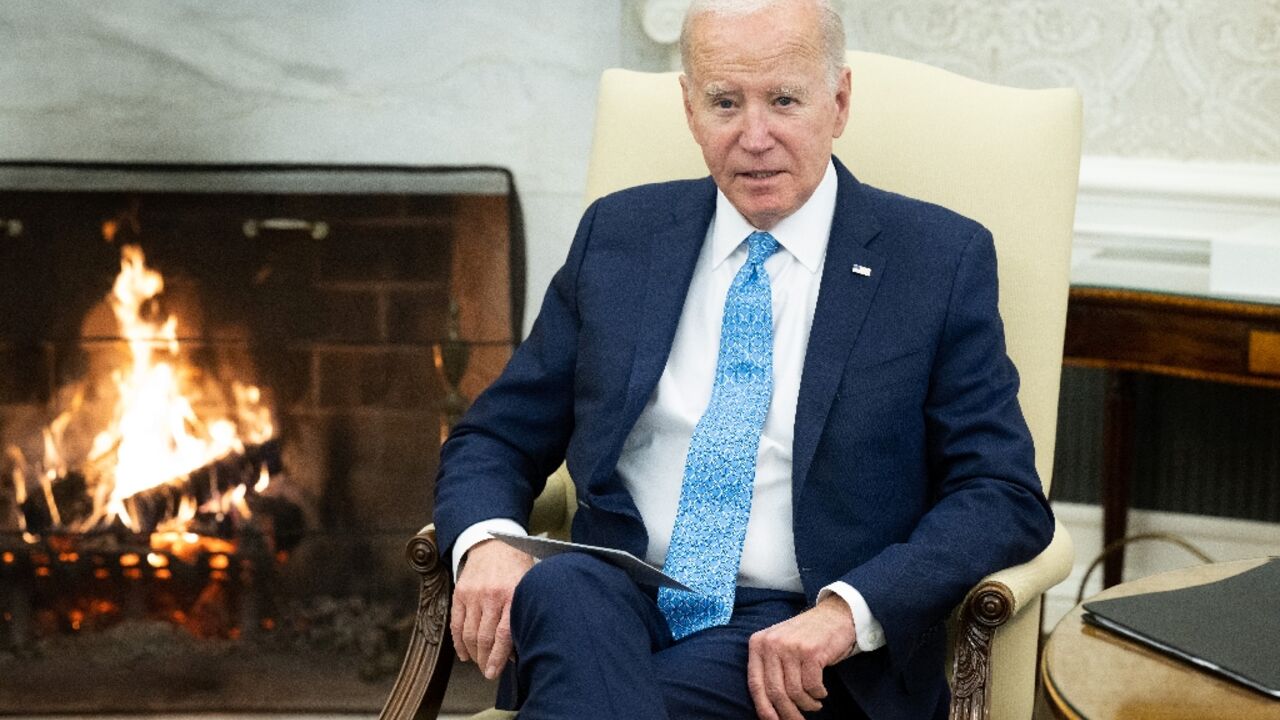Biden announces US aid air drops in Gaza

President Joe Biden said Friday that the United States would start to deliver relief supplies from the air into Gaza, a day after the deaths of more than 100 Palestinians at an aid convoy.
"We need to do more, and the United States will do more," Biden told reporters at the White House at the start of a meeting with Italian Prime Minister Giorgia Meloni.
"In the coming days we're going to join with our friends in Jordan and others in providing air drops of additional food and supplies," the 81-year-old Biden said in the Oval Office.
The announcement comes as negotiations continue for a ceasefire between Israel and Hamas, amid a humanitarian crisis in Gaza which has been under siege since Hamas's October 7 attacks on Israel.
Biden has pushed Israel to reduce civilian casualties and allow aid in, while at the same time he has maintained military assistance for the key US ally.
Biden said later he was "hoping" for a deal on a six-week ceasefire by the Muslim holy month of Ramadan, which will start on March 10 or 11, depending on the lunar calendar.
"We'll get there but we're not there yet -- we may not get there," Biden added, without elaborating, as he headed to his helicopter to spend the weekend at the presidential Camp David retreat.
Ceasefire talks have been complicated by Thursday's incident in which dozens of desperate Palestinians were killed rushing an aid convoy in northern Gaza, where the UN has warned of famine.
An Israeli source acknowledged troops had opened fire on the crowd, believing it "posed a threat."
- 'Terrible war' -
"Innocent people got caught in a terrible war, unable to feed their families. And you saw the response when they tried to get aid in," Biden said as he announced the air drops.
The US president added that he would "insist" that Israel let in more aid trucks, while it would also look at a possible "marine corridor" to deliver large amounts of aid into Gaza.
Biden had been planning air drops for some time but Thursday's incident "certainly underscored for the president" the need to find other ways to get aid in, White House National Security Council spokesman John Kirby said.
The United States planned to carry out multiple air drops that would last weeks, said Kirby, adding that it would not be "one and done."
But it was also a "tough military operation" that required careful planning by the Pentagon for the safety of both Gazan civilians and US military personnel.
"It is extremely difficult to do an airdrop in such a crowded environment as is Gaza," said Kirby.
The United States also had to manage the risks to its own personnel.
"This is a war zone. So there's an added element of potential danger to the pilots in the aircraft," he added.
Kirby said Israel was meanwhile "seriously" investigating the aid convoy deaths.
However, Washington would continue to support Israel militarily despite the growing humanitarian catastrophe in Gaza, Kirby said.
"We are still helping Israel with their needs to defend themselves," he said.






